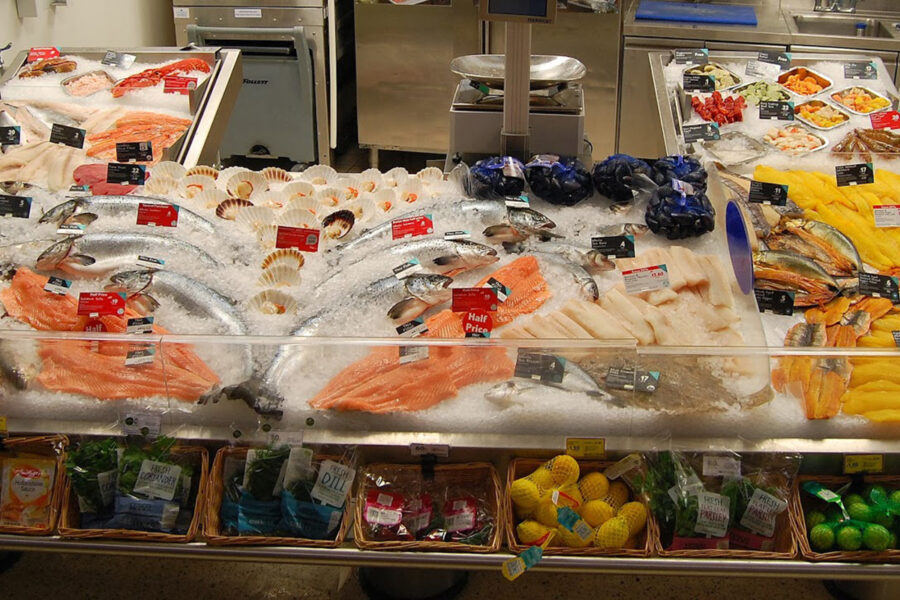The planned closure of the last fresh fish counters at Tesco has created its first casualty in the processing sector, reports Andy Read.
Tesco announced in February last year that it was closing 317 fresh fish counters at stores around the country, and in January confirmed that the final 279 counters would close for good on 26 February.
The Grimsby-based Hilton Food Group has said that it is closing its traditional smokehouse in the town, which currently employs a staff of nine, as a result of the Tesco decision. The smokehouse’s products were aimed at the high-end quality market, with the company already producing larger volumes of products for pre-packing across two much larger Grimsby-based processing units.
The Tesco counter closure mirrors a long trend in the supermarket trade towards sales of pre-packed fish products – a move that has adversely impacted many traditional products and operators more suited to wet fish counters.
Supermarket insiders have long confirmed that outside of the ‘big five’ – salmon, prawns, cod, haddock and tuna – very little on the counters was profitable. Fish counters were often run in the knowledge that they were a drag on profits, but nevertheless enhanced the overall ‘look’ of the stores.
Seafish market analysis shows that counter sales have seen long-term decline over the past 20 years, with Covid and more recent counter closures playing a fairly minor part.
Even 10 years ago, only around 7% of seafood was sold through retailer counters; 93% was sold prepacked.
By June 2022, 97% was being sold prepacked, and this figure was unchanged in January 2023.
The main driver behind the counter decline, Seafish has found, is shoppers wanting to be in and out of the store as quickly as possible – but they also report being intimidated by having to speak to a fishmonger.
With this type of disruption to traditional and existing markets likely to accelerate, Seafood Scotland has been looking closely at how best the Scottish fishing and processing sectors can adapt and thrive in this new world.
Speaking to Fishing News, Donna Fordyce, CEO of Seafood Scotland, said: “It was disappointing to hear about the closure of all Tesco fish counters.
“The fish category – like other food categories – is under pressure due to the cost-of- living crisis. Branded products are being hit harder as consumers look for better value. A key barrier is the perception that fish is expensive.
“Seafood Scotland is working closely with a specialist food and drink research organisation, The Knowledge Bank, for insight into consumer purchasing decisions when it comes to seafood. It’s interesting to see how French retailers, for example, are tackling this issue.
“One retailer, Grand Frais, is driving sales of chilled seafood while also providing value, which is so key right now. They offer curated ranges without fish bones, and another section for fish that is easy to cook, often pre- prepared with marinades or sauces, a category that is showing encouraging growth in the UK.
“Seafood in sauce is showing more resilience versus other sectors, despite price increases, boosted by the conservative nature of UK consumers. Convenience is also key, as many people lack knowledge and skills to prepare and cook fish.
“The challenge for our industry is to continue to innovate, add value, attract new consumers to the category, and communicate the sustainability credentials of Scottish seafood. We welcome innovations at every stage of the sea to plate journey.”
This story was taken from the latest issue of Fishing News. For more up-to-date and in-depth reports on the UK and Irish commercial fishing sector, subscribe to Fishing News here or buy the latest single issue for just £3.30 here.
Sign up to Fishing News’ FREE e-newsletter here.








